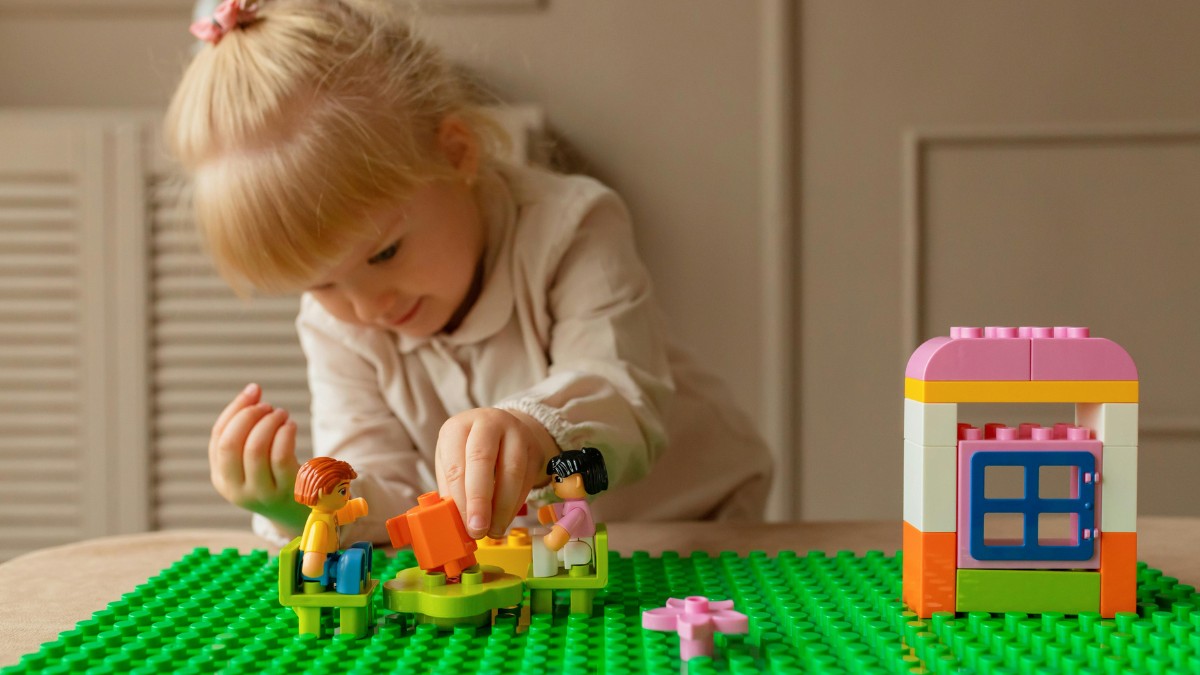How to Become a Behavior Technician?
Unlock the path to becoming a behavior technician. Discover education, training, and job opportunities for a rewarding career.
.avif)
How to Become a Behavior Technician?
Exploring a Career as a Behavior Technician
If you have a passion for helping others and are interested in a career in supportive care, becoming a behavior technician might be the right path for you. In this section, we will explore what a behavior technician is and the importance of their role in supportive care.
What is a Behavior Technician?
A behavior technician, also known as a behavior therapist or behavior interventionist, is a professional who works closely with individuals with behavioral challenges or developmental disabilities. They provide direct support and implement behavior intervention plans under the supervision of a behavior analyst or a licensed professional.
Behavior technicians play a crucial role in assisting individuals in achieving their goals and improving their overall quality of life. They work directly with clients, implementing behavior modification techniques and strategies to address challenging behaviors and promote positive, adaptive behaviors.

Importance of Behavior Technicians in Supportive Care
Behavior technicians are essential in the field of supportive care, as they provide direct support to individuals with behavioral challenges. Their contributions are invaluable in helping clients develop new skills, improve social interactions, and enhance their overall level of functioning.
By implementing behavior intervention plans, behavior technicians help individuals reduce problem behaviors and develop more appropriate and adaptive behaviors. They work collaboratively with a team of professionals, including behavior analysts, psychologists, and educators, to design and implement effective treatment plans tailored to each individual's specific needs.
Through their dedication and expertise, behavior technicians make a significant impact on the lives of their clients and their families. They contribute to the overall well-being and progress of individuals with behavioral challenges, empowering them to lead more fulfilling and independent lives.
Understanding the role of behavior technicians and their importance in supportive care is the first step towards embarking on a career in this field. In the following sections, we will explore the educational and training requirements, gaining experience, and the essential skills and traits needed to succeed as a behavior technician.
Education and Training Requirements
To embark on a career as a behavior technician, certain educational and training requirements must be met. These requirements ensure that behavior technicians possess the necessary knowledge and skills to support individuals in need of behavioral intervention.
Minimum Educational Qualifications
The minimum educational qualification for becoming a behavior technician typically includes a high school diploma or equivalent. However, some employers may require additional educational credentials, such as an associate's degree or higher in a related field like psychology or education.
While a college degree is not always mandatory, it can enhance job prospects and provide a deeper understanding of behavior analysis principles. Pursuing relevant coursework or degrees can offer a competitive edge and demonstrate a commitment to professional development within the field.
Certification and Licensing Process
Obtaining certification is an essential step for becoming a behavior technician. The Behavior Analyst Certification Board (BACB) offers the Registered Behavior Technician (RBT) credential, which is widely recognized in the field. This certification validates that an individual has met the necessary competency requirements to practice as a behavior technician.
To become an RBT, candidates must complete the following steps:
- Training: Candidates must complete a 40-hour training program that covers the RBT Task List provided by the BACB. This training provides an overview of behavior analysis principles and prepares individuals for their role as a behavior technician.
- Competency Assessment: After completing the training, candidates must pass a competency assessment conducted by a qualified supervisor. This assessment evaluates their ability to apply the concepts learned during the training program.
- Examination: Once the competency assessment is passed, candidates need to pass the RBT examination administered by the BACB. This exam tests their knowledge of behavior analysis principles and their ability to apply them in real-life scenarios.
- Supervision: As an RBT, individuals must work under the supervision of a qualified professional, such as a Board Certified Behavior Analyst (BCBA) or a Board Certified Assistant Behavior Analyst (BCaBA). Supervision ensures that behavior technicians receive ongoing guidance and support in their practice.
Maintaining the RBT credential requires adherence to the BACB's ethical guidelines and completion of continuing education requirements.
By meeting the minimum educational qualifications and obtaining the necessary certification, aspiring behavior technicians can establish a strong foundation for their career. It is important to research the specific requirements of the region or employer where one intends to practice, as regulations can vary.
Gaining Experience
To become a successful behavior technician, gaining hands-on experience is vital. This section will explore two key avenues for acquiring experience: internships and practical training, as well as mentorship opportunities.
Internships and Practical Training
Internships and practical training programs provide valuable opportunities for aspiring behavior technicians to apply their knowledge in real-world settings. These experiences allow individuals to work alongside experienced professionals and gain practical skills in supporting individuals with behavioral challenges.
Internships typically vary in duration and may be available through educational institutions, clinics, or organizations specializing in behavioral health. During an internship, aspiring behavior technicians have the chance to observe and participate in various therapeutic interventions, behavior assessments, and data collection processes. This hands-on experience helps in developing a deeper understanding of the role and responsibilities of a behavior technician.
Practical training programs, on the other hand, provide structured learning experiences that combine classroom instruction with supervised fieldwork. These programs often require a specific number of hours of practical training under the guidance of a qualified behavior analyst or supervisor. Practical training helps aspiring behavior technicians develop the necessary skills, such as implementing behavior intervention plans and conducting behavior assessments, while receiving constructive feedback and support.
Mentorship Opportunities
Mentorship opportunities play a crucial role in the growth and development of behavior technicians. Mentors, who are experienced professionals in the field, provide guidance, support, and knowledge transfer to aspiring behavior technicians. Through mentorship, individuals can gain valuable insights, refine their skills, and navigate the challenges of the profession.
Mentorship can take various forms, including formal mentoring programs within educational institutions or professional organizations, or informal arrangements where experienced behavior technicians voluntarily support and guide individuals who are starting their careers. Mentors offer advice on best practices, share their experiences, and provide feedback on performance. This relationship fosters professional growth and helps aspiring behavior technicians build confidence and competence in their work.
By actively seeking internships, practical training opportunities, and mentorship relationships, individuals can enhance their practical skills, gain exposure to different settings, and increase their chances of success as behavior technicians. It's important to remember that hands-on experience and guidance from experienced professionals are invaluable assets in this field.
Skills and Traits for Success
To excel as a behavior technician, certain skills and traits are essential. These qualities enable professionals in this field to effectively support individuals and make a positive impact on their lives. Here are three key skills and traits that contribute to success as a behavior technician:
Patience and Empathy
Patience and empathy are vital qualities for behavior technicians. Working with individuals who may exhibit challenging behaviors requires a high level of patience. It is important to remain calm, composed, and understanding while implementing behavior intervention strategies.
Empathy plays a crucial role in building rapport and establishing trust with clients. By putting yourself in their shoes, you can better understand their perspectives, emotions, and needs. This allows you to tailor your interventions and support to meet their unique requirements.
Strong Communication Skills
Effective communication is paramount for behavior technicians. They must be able to communicate clearly and compassionately with individuals under their care, as well as with their families, caregivers, and other members of the support team.
Being able to listen actively and express oneself clearly helps behavior technicians gather important information about the individual's needs, goals, and progress. It also allows them to provide feedback, instructions, and support to the client and their support network.
Attention to Detail
Attention to detail is a crucial skill for behavior technicians. They need to be observant and keenly aware of the individual's behavior patterns, triggers, and progress. By paying close attention to even the smallest changes or nuances, behavior technicians can make informed decisions and adjustments to their interventions.
Accurate data collection is an essential aspect of behavior analysis, and attention to detail is critical for recording and analyzing behavior data. This data helps behavior technicians monitor progress, identify trends, and modify interventions as needed.
These skills and traits, combined with proper education and training, equip behavior technicians to provide effective support and make a positive impact on the lives of individuals they work with.
When considering a career as a behavior technician, it is important to recognize and develop these skills and traits. They will not only contribute to your success in this field but also enhance your ability to make a meaningful difference in the lives of those you serve.
Job Opportunities and Growth
As the demand for supportive care continues to increase, so does the need for qualified behavior technicians. If you're considering a career in this field, it's important to explore the various job opportunities and potential for growth.
Work Settings for Behavior Technicians
Behavior technicians can find employment in a variety of settings, including:
These diverse work settings allow behavior technicians to make a positive impact on individuals across different age groups and backgrounds. It's important to consider your personal preferences and interests when choosing the most suitable work setting for your career.
Career Advancement Paths
With experience and further education, behavior technicians can pursue various career advancement paths. Some opportunities for growth include:
These career advancement paths offer opportunities for personal and professional growth within the field of behavior analysis. It's important to continuously seek further education, gain experience, and pursue professional development to maximize your potential for career advancement.
By exploring the various work settings and career advancement paths available to behavior technicians, you can make informed decisions about your professional journey. Remember to stay dedicated, committed to ongoing learning, and passionate about making a positive difference in the lives of individuals with behavioral challenges.
Resources and Support
Aspiring behavior technicians can find valuable resources and support through professional organizations and continuing education options. These resources can enhance their knowledge, provide networking opportunities, and support their professional growth in the field.
Professional Organizations for Behavior Technicians
Joining professional organizations specific to behavior technicians can be beneficial for staying updated on industry trends, accessing valuable resources, and connecting with other professionals in the field. Here are some prominent professional organizations for behavior technicians:
These organizations can provide behavior technicians with valuable resources, professional development opportunities, and a platform for collaboration and growth.
Continuing Education Options
Continuing education is crucial for behavior technicians to stay current with the latest research and best practices in the field. It allows them to expand their knowledge, refine their skills, and pursue career advancement opportunities. Here are some continuing education options for behavior technicians:
Continuing education options provide behavior technicians with opportunities to expand their knowledge, refine their techniques, and stay up to date with the latest developments in the field of behavior analysis.
By utilizing the resources and support offered by professional organizations and engaging in continuing education, behavior technicians can enhance their skills, stay current with industry standards, and advance their careers in the field of supportive care.
Sources
https://www.adinaaba.com/how-to-become-a-behavior-technician
https://www.totalcareaba.com/autism/how-to-become-behavior-technician
https://www.abtaba.com/how-to-become-a-behavior-technician
https://www.ziprecruiter.com/Behavioral-Technician/What-Is-How-to-Become














